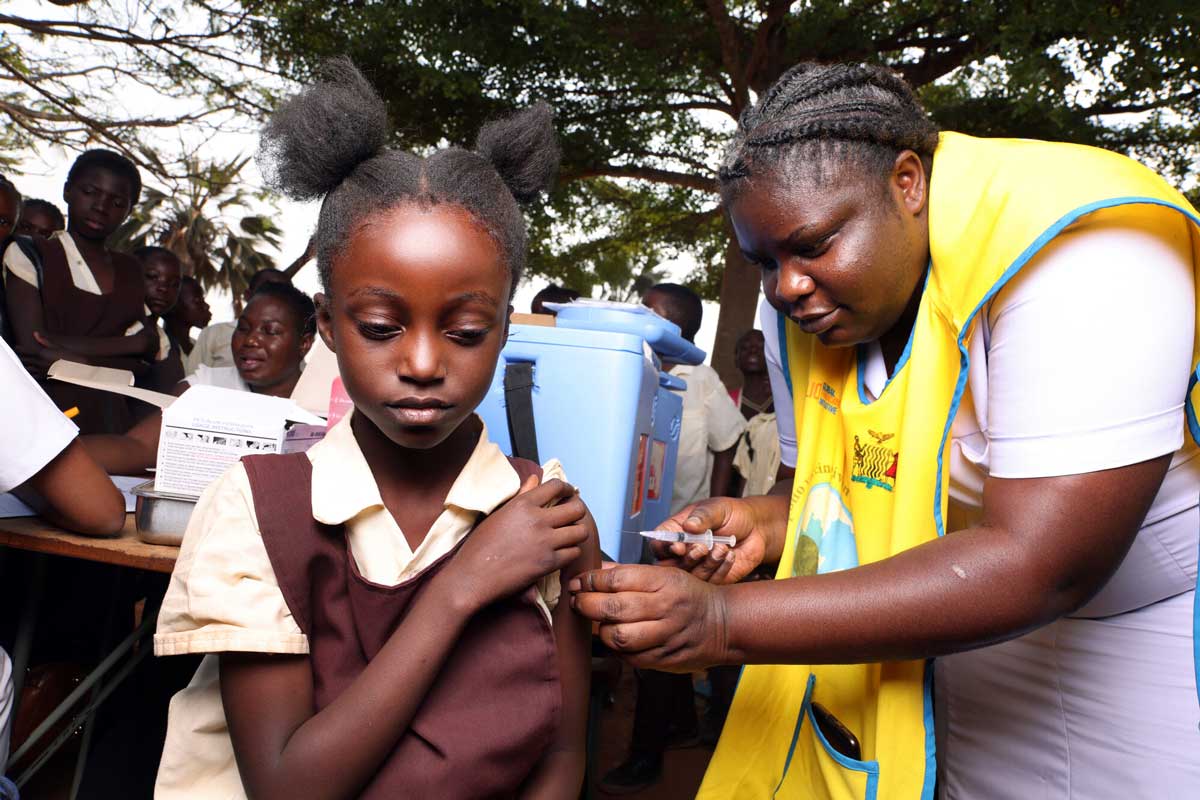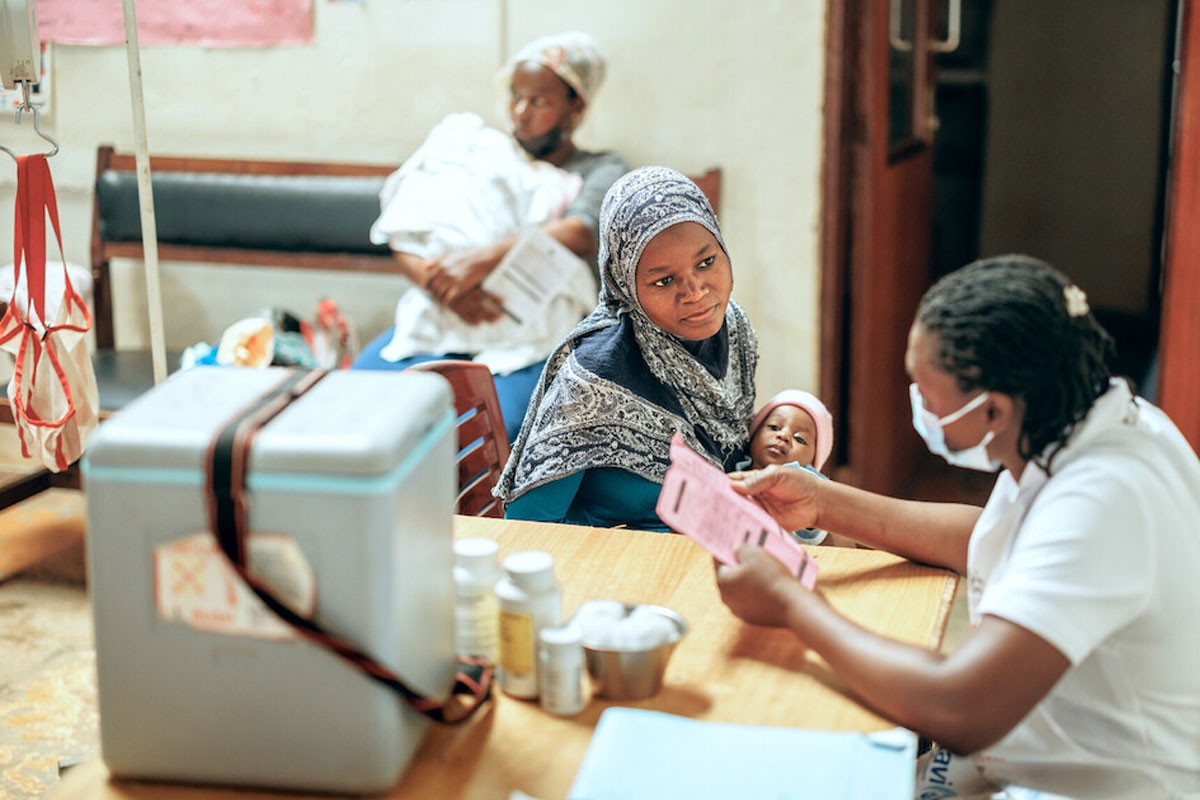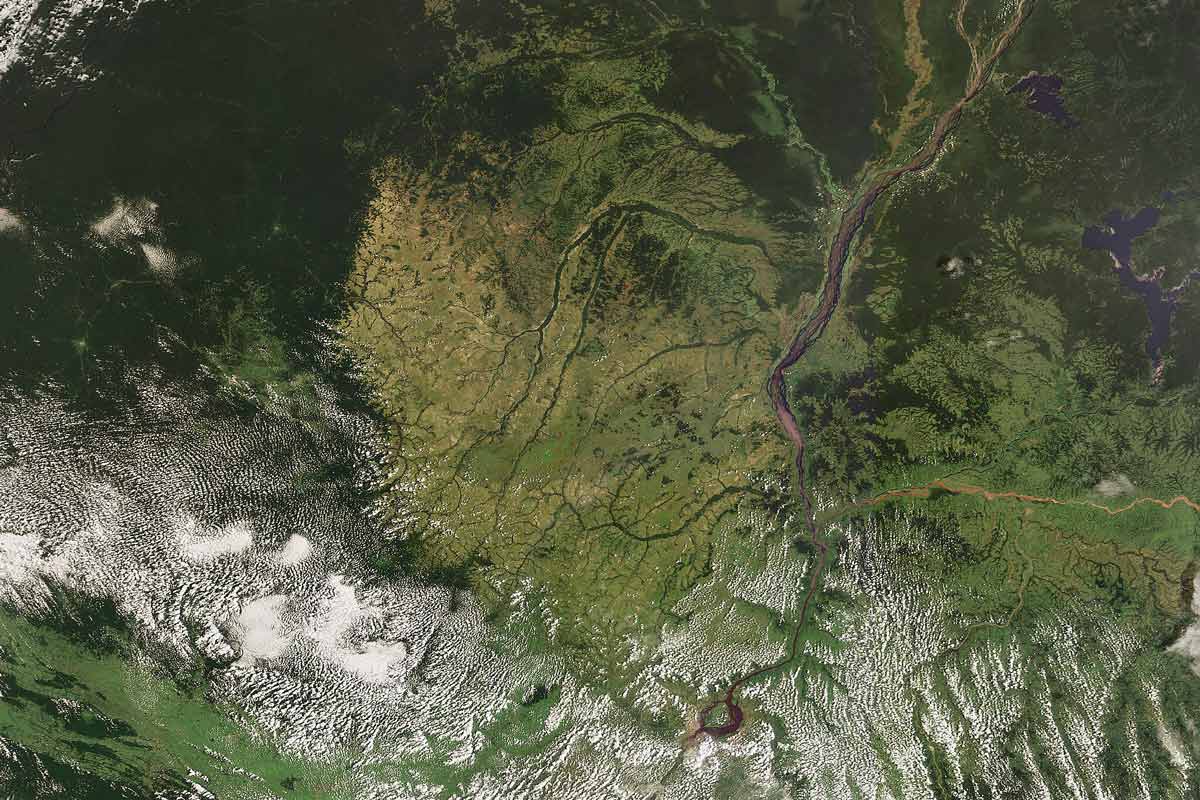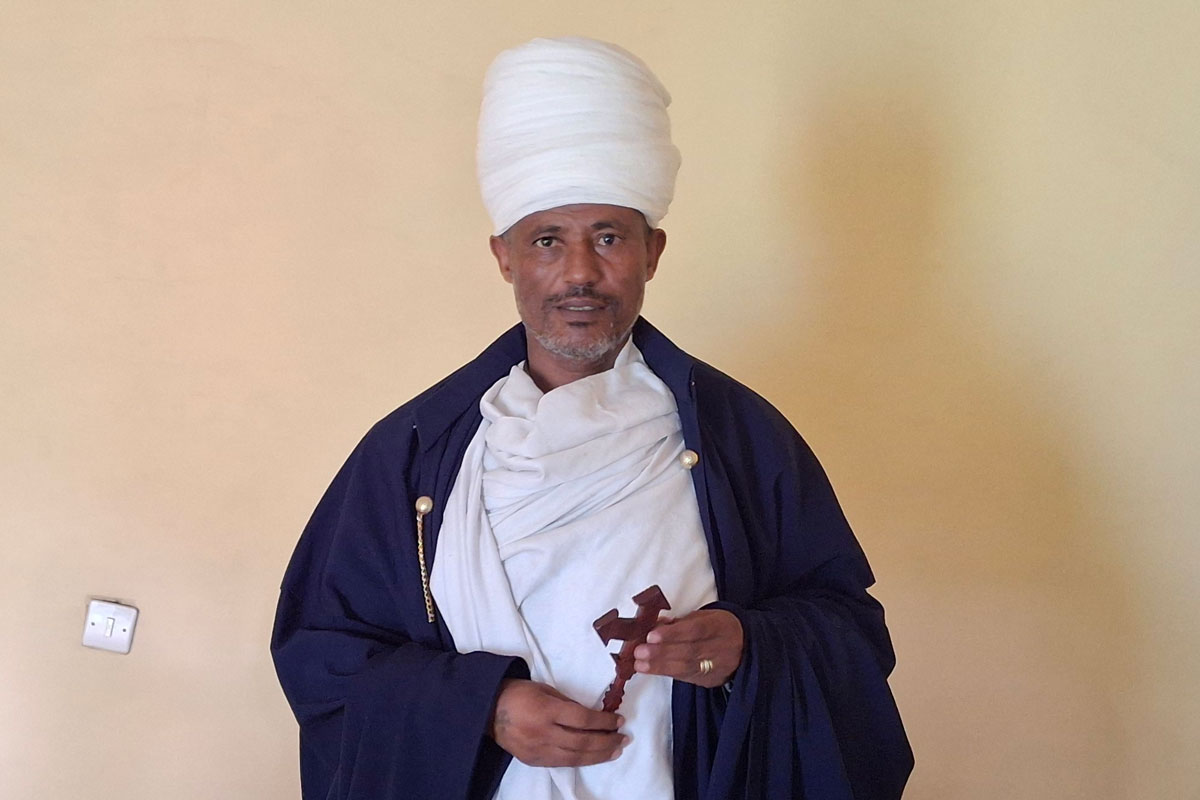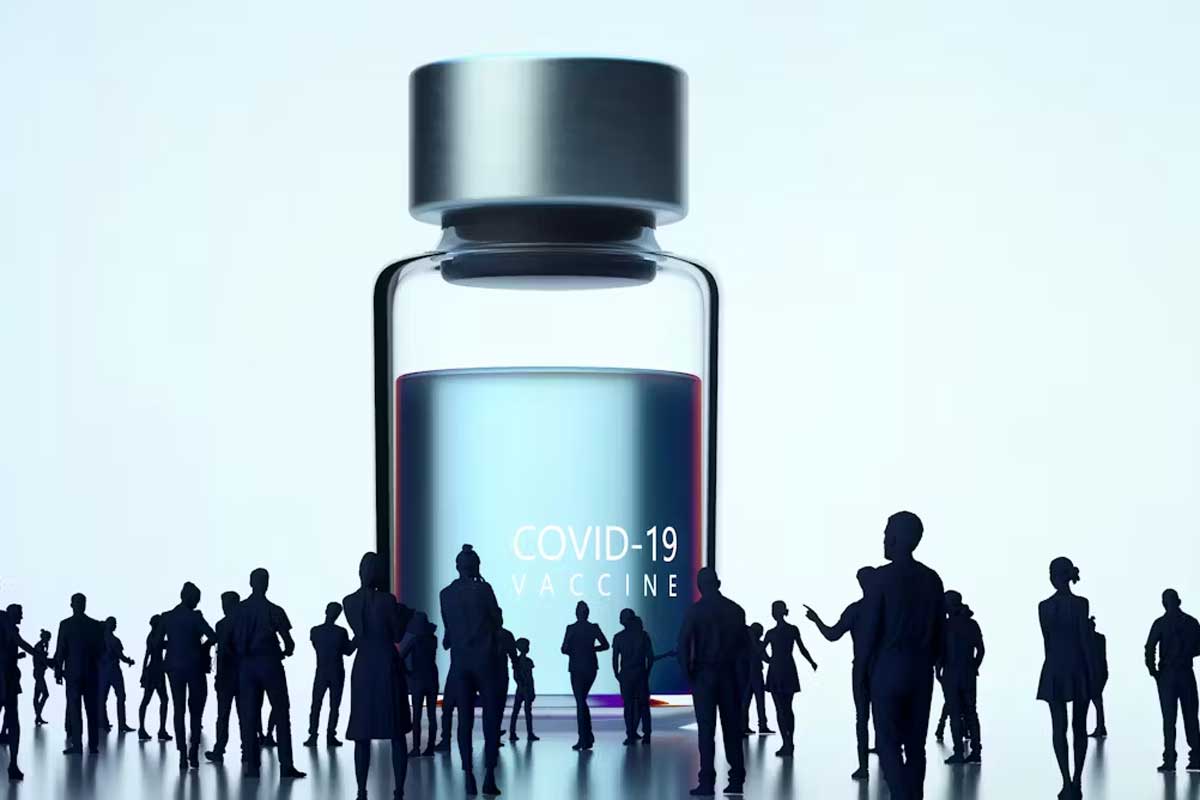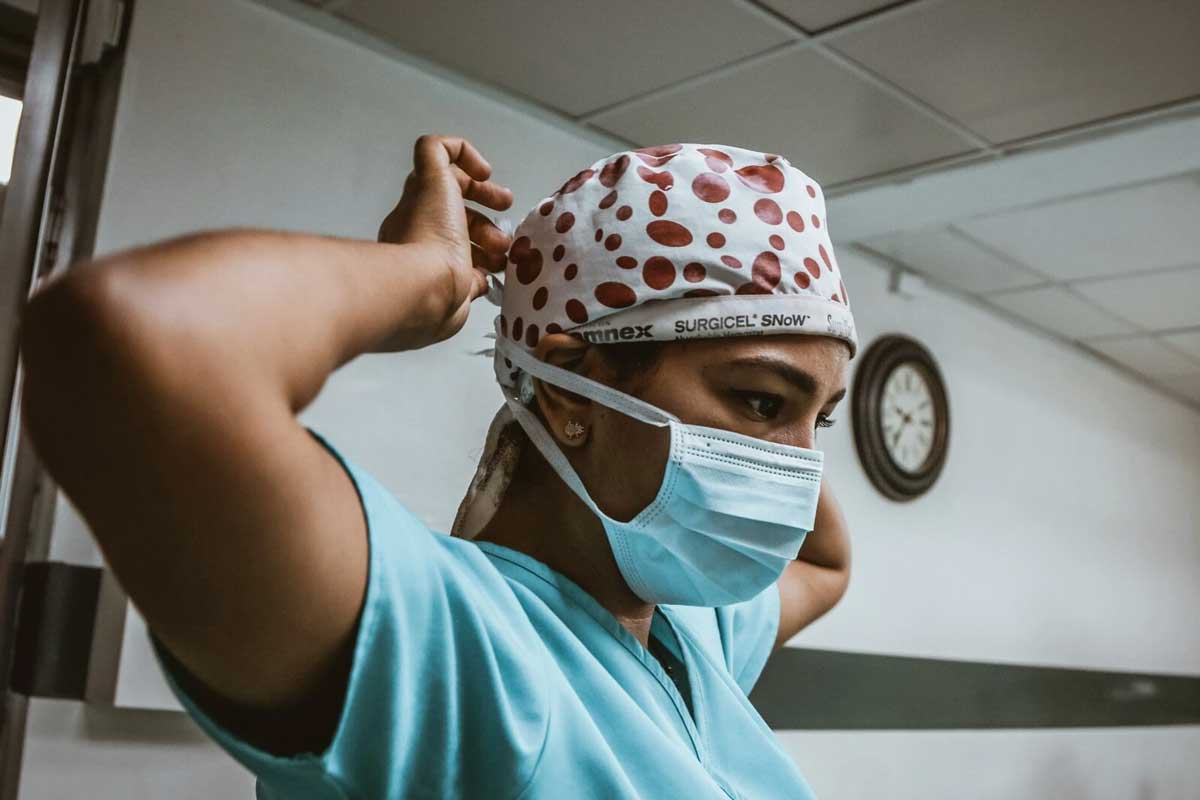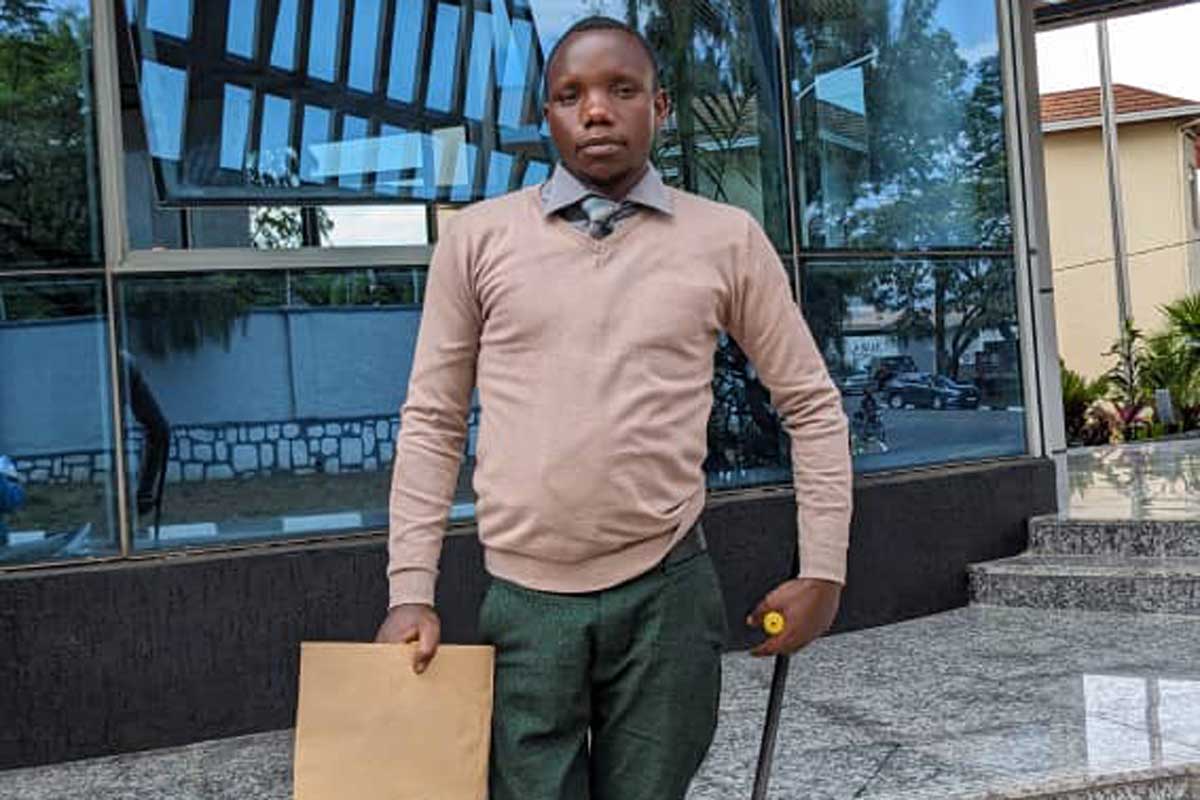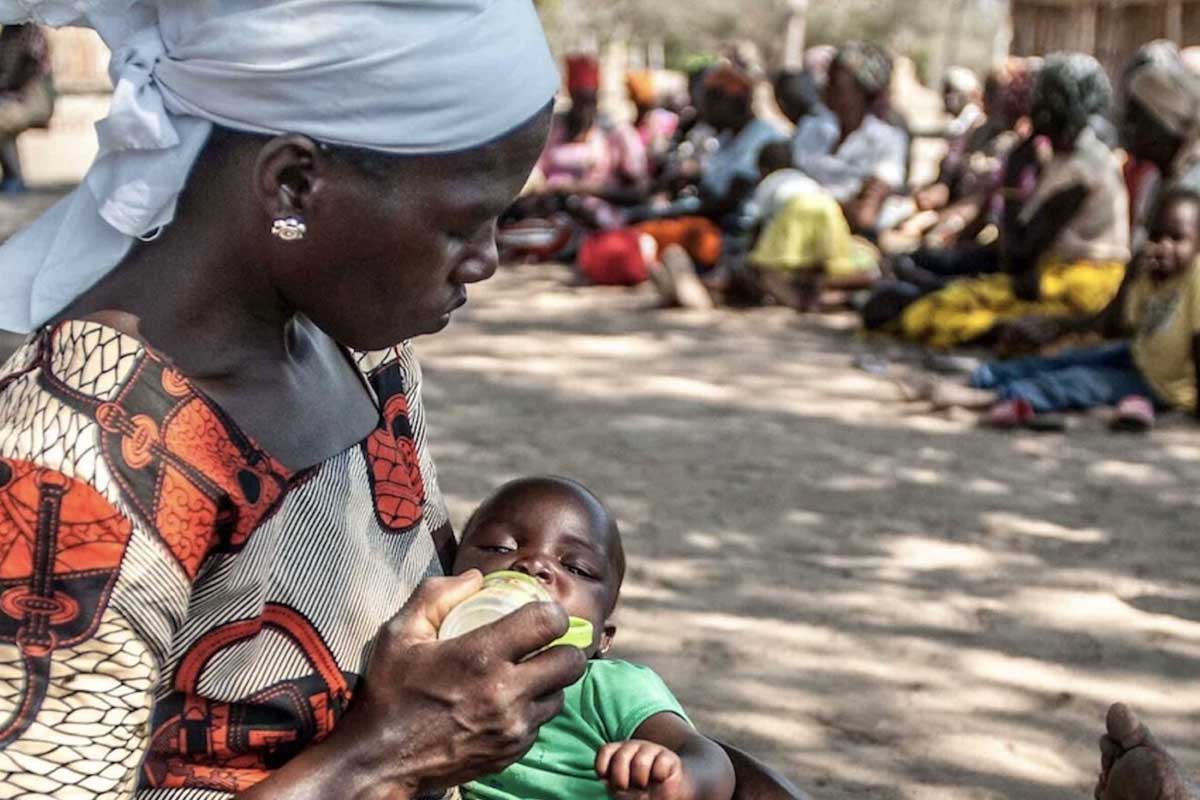How Botswana, a self-financing COVAX country, solved its pandemic strategy puzzle
If anyone knows that a radically inclusive health agenda can rout a rampant virus, it's Botswana. That's part of why, in 2020, the government "jumped at" the chance to join COVAX, Health Minister Edwin Dikoloti tells VaccinesWork. But that was never going to be the end of the story.
- 11 January 2023
- 7 min read
- by Gavi Staff

Plan A was to physically blockade the virus. Slam the borders shut, order lockdowns, urge "extreme social distancing". In Botswana, like pretty much everywhere else, Plan A failed in months. In August 2020, the number of confirmed cases of COVID-19 in the country hit 1,000; in late November, the infection tally broke 10,000 and kept accelerating.
Botswana had recent experience of just what a massive, farsighted public health intervention could achieve. “We were just emerging from the HIV/AIDS era. If you remember very well, in the early 2000s Botswana was one of the countries that was said to be on the verge of extinction.”
Plan B – the pharmaceutical way out – was always going to be a complicated course for the government to chart. "By then, when you mentioned the word "vaccine" a lot of people would think, 'no, no, no – you're not in your normal senses'," remembers Edwin Dikoloti, who has served as Botswana's Minister of Health and Welfare since mid-2020. From design to rollout, creating new vaccines has taken drug developers on average more than a decade. That staking its resources on an as-yet non-existent jab represented Botswana's best bet against a mystery virus would seem, Dikoloti knew, far-fetched to many.
Learning from the last pandemic
And yet, Botswana had recent experience of just what a massive, farsighted public health intervention could achieve. "We were just emerging from the HIV/AIDS era," Dikoloti explains. "If you remember very well, in the early 2000s Botswana was one of the countries that was said to be on the verge of extinction." At the turn of the millennium, an estimated 35.8% of people in Botswana – more than one in three – were HIV-positive. In the year 2001 alone, 26,000 people died of AIDS.
But in 2002, then-President Festus Mogae announced a new, ambitious HIV/AIDS programme. Under a public-private partnership between the government, the Bill and Melinda Gates Foundation and pharma giant Merck, anti-retroviral treatment (ART) became available to citizens for free. Botswana built out its laboratory system to better monitor the virus's progress, and in 2004, HIV testing became an opt-out component of routine medical visits for everyone. In the years since, the country's commitment to radically inclusive access to HIV/AIDS testing, prevention and treatment has only levelled up – as of 2019, even foreign non-residents qualify for free HIV drugs.
“We grew a lot from this experience. One critical and key thing we learned was collaboration – making sure that we don’t exist in isolation. When the COVAX facility was brought to our attention, it was one of those things that we really jumped at.”
It has been a triumph: AIDS-related deaths fell 72% between 2002 and 2020, and in 2022, Botswana surpassed the UN's 95-95-95 goal on HIV: 95% of the population are now aware of their HIV status, 98% of HIV positive people are in treatment, and 98% of them are virally supressed.
"We grew a lot from this experience," Dikoloti reflects. "One critical and key thing we learned was collaboration – making sure that we don't exist in isolation."
He continues: "When the COVAX facility was brought to our attention, it was one of those things that we really jumped at."
The great vaccine strategy puzzle: buying doses and scoring choices
Botswana joined the COVAX Facility as a self-financing participant (SFP), and not as one of the 92 lower-income countries whose allocated vaccine doses would be donor-funded.
COVAX represented a step away from a red-in-tooth-and-claw model of health care distribution – a vote for spread risk and shared safety. As Dikoloti told WHO in September 2020: "COVAX and the idea of equal access to a COVID-19 vaccine, regardless of ability to pay, is not just a moral imperative, it is the only practical solution to this pandemic."
Have you read?
Practically, for Botswana, it permitted flexibility. "The COVAX Facility was our first commitment," Dikoloti says. But that "commitment" wasn't rigid. Botswana needed doses – and in a sea of unknowns, it also needed room for manoeuvre. The country chose to become an 'optional purchaser' – meaning that if more vaccines were approved, allowing a wider portfolio of deals to come good or if a manufacturer chose to supply them over other customers, the country wouldn't be bound to purchase the COVAX doses.
"We did our own calculations, based on the fact that the majority of what COVAX promised was Astra Zeneca. We could tell from the calculations that we would be able to save many lives out of that. That was before J&J and the rest were approved."
"We wanted every vaccine we could lay our hands on," Dikoloti explains. In addition to joining COVAX, "we went out of our way to try and join other platforms" – such as the African Union's African Vaccine Acquisition Trust (AVAT). By spreading their options, says Dikoloti, "we could dictate the terms of the choice of vaccine that we could get, and what we could not get. It helped a great deal. People had their priorities."
The country's highly mobile youth, for instance, would turn out to prefer Johnson & Johnson's one-and-done regimen to the Astra Zeneca two-dose vaccine. "J&J could help you push numbers," Dikoloti explains.
But when it came to saving lives, timing was a decisive variable. The first COVAX consignments of Astra Zeneca vaccine arrived in Gaborone when they were most urgently needed.
"We managed to save a lot of lives"
On March 27, 2021, 24,000 of the 100,800 doses initially purchased by Botswana from COVAX landed on the tarmac at Sir Seretse Khama International Airport. They joined 30,000 other AZ doses shipped earlier that month by India, and came just in time. Since the new year, cases had been surging – daily deaths, in March, were in the double figures.
"We are only 2.3 million! To us, every loss is a big percentage," Dikoloti says. That the first tranche landed then seemed fortuitous: "We were lucky," Dikoloti says, "though it was not enough."
After slowing down through April, in May 2021, Botswana's infection rate began a hockey-stick ascent towards the worst weeks of the country's pandemic. By August, close to 2,300 new cases would be confirmed each day; more than 30 a day would die.
“Botswana is one of the countries with the highest immunisation rates, and without COVAX, without COVAX’s support, we wouldn’t have made it.”
Despite the government's best efforts, the health system was overwhelmed. "There was so much political will," Dikoloti says. "Our task force was chaired by the head of state, and his number one governmental project was saving lives from COVID-19." But oxygen stocks ran short. "You know, I'd never seen our main referral hospital filled to capacity before."
Globally, vaccine supply chains were choked, but in June, another COVAX shipment of vaccines – this time, Pfizer – landed . In August, September, and October there were more – of Pfizer and Astra Zeneca – with each consignment bigger than the last. The blockages had begun to ease.
To date, Botswana has been allocated more than 1.7 million COVAX doses. With 61% of the country now fully vaccinated, 47% of the protective doses delivered have been shipped by COVAX.
"It helped a great deal, and we were able to escape that third wave," Dikoloti says, then hesitates. COVAX was a great plan, he thinks – but he wishes it could have "been taken further". It wasn't always easy, and still: "Botswana is one of the countries with the highest immunisation rates, and without COVAX, without COVAX's support, we wouldn't have made it."
The metric that matters most tells a story, finally, of two halves: of regret and relief. "Unfortunately, some lives were lost. But lives were saved."
